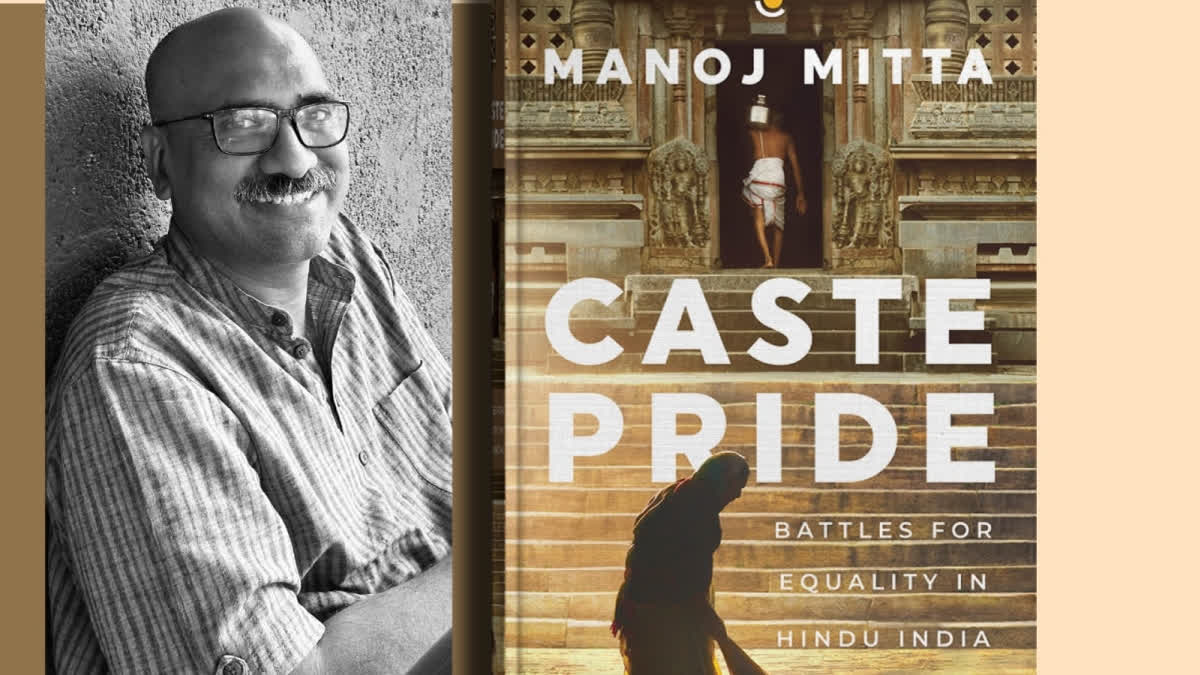New Delhi: A new book by journalist-writer Manoj Mitta looks at the history of caste-based mass violence in India in the context of pre-and post-independence socio-legal reforms. Formally released on Friday on the occasion of Ambedkar Jayanti, Caste Pride, published by Westland, examines the endurance and violence of the Hindu caste system through the lens of the law.
Initially intended as the third book in a trilogy on mass violence in India, Caste Pride became a deeper discourse over a course of seven years about the impunity, which involved investigators, prosecutors and judiciary at large, against Dalit atrocities, even though a special law on caste-based violence had been enacted in 1989.
-
I wrote about these four incredible books for #DalitHistoryMonth. Please pick them up. https://t.co/JDQtQilYj6 pic.twitter.com/7m5JH1zJPt
— Meena Kandasamy (@meenakandasamy) April 3, 2023 " class="align-text-top noRightClick twitterSection" data="
">I wrote about these four incredible books for #DalitHistoryMonth. Please pick them up. https://t.co/JDQtQilYj6 pic.twitter.com/7m5JH1zJPt
— Meena Kandasamy (@meenakandasamy) April 3, 2023I wrote about these four incredible books for #DalitHistoryMonth. Please pick them up. https://t.co/JDQtQilYj6 pic.twitter.com/7m5JH1zJPt
— Meena Kandasamy (@meenakandasamy) April 3, 2023
Mitta has earlier written books on the Sikh massacre of 1984 - When a Tree Shook Delhi, and Muslim deaths in Godhra in 2002 - Modi and Godhra: The Fiction of Fact-Finding. As I delved deeper into Dalit massacre cases, I began to realise the need to go beyond this manifest violence to understand how different functionaries of the Indian state investigators, prosecutors, trial judges and appellate judges could get away with blatant displays of caste prejudice, over and over again, Mitta writes in his new book.
The author adds that to come to grips with the underpinnings of that prejudice, he looked up the legislative debates on caste-related enactments in independent India, whether civil or criminal, as papers related to the abolition of untouchability in the Constituent Assembly. The book establishes that the political change of 1947 did not offer a clean slate for the enactment of caste reforms as a result of the unresolved battles within the Hindu society of the colonial period.
It dawned on me that the surge in the violence against Dalits, and the general impunity for it despite the caste reforms after Independence, was the result of unresolved battles within the Hindu society of the colonial period, Mitta said. The author's paradigm-shifting history of caste dives into legislative and judicial records of battles for equality across five sections and 18 chapters.
The book looks at legal instruments formed to exclusively punish lower castes from as early as 1816 in the form of a colonial law in Madras Presidency, enacted by British administrator Thomas Munro - a strategy, Mitta believed, the British used to capture the hearts and minds of privileged sections of the Hindus.
Also read: India's stretched health care fails millions in rural areas
The book traverses through conversations and landmarks on caste prejudice in legal and legislative context in post-Independence India while looking at instances of killings and violence against lower castes. It looks into the first recorded instance of mob violence against Harijans in 1968 in Tamil Nadu's Kilvenmani village where 42 people, mostly women and children, were burnt alive, as well as the Belchhi murders in 1977 in which 11 people, including eight of lower castes, were killed by a mob.
The Belchhi case also became the first and only recorded instance in India of a killer of Harijans being judicially executed as the prime accused was delivered a death sentence. The book also records a number of mass killings of Dalits and Muslims at the behest of Ranvir Sena, a militia outfit from Bihar formed by landlords, committed over the years.
...Even where justice was done, as in the case of the 2006 Khairlanji massacre in Maharashtra, courts have betrayed a reluctance to admit the caste angle. If legal safeguards have proved to be dysfunctional, it is evidently because violence has remained intrinsic to the inequality bred by caste, Mitta writes.
In the ambit of this book, Mitta also notes the contribution of reformers who were mostly unsung heroes including Vithalbhai Patel, Maneckji Dadabhoy, BV Narasimha Ayyar, Kalicharan Nandagaoli, Hari Singh Gour, MR Jayakar and MC Rajah. Of the several reasons they did not get their due in history, one was that these caste reformers either did not belong to the Indian National Congress, or if they did, had swum against its mainstream consensus, the author notes in the book.
On the other hand, Mitta claims that some prominent Congress leaders including T Madhava Rao, MG Ranade, Bal Gangadhar Tilak, Motilal Nehru, Madan Mohan Malaviya, Surendra Nath Banerjea and C Rajagopalachari pushed back against caste reforms at different times even as they positioned themselves as reformers. The book is available to buy on online and offline stores. (PTI)



